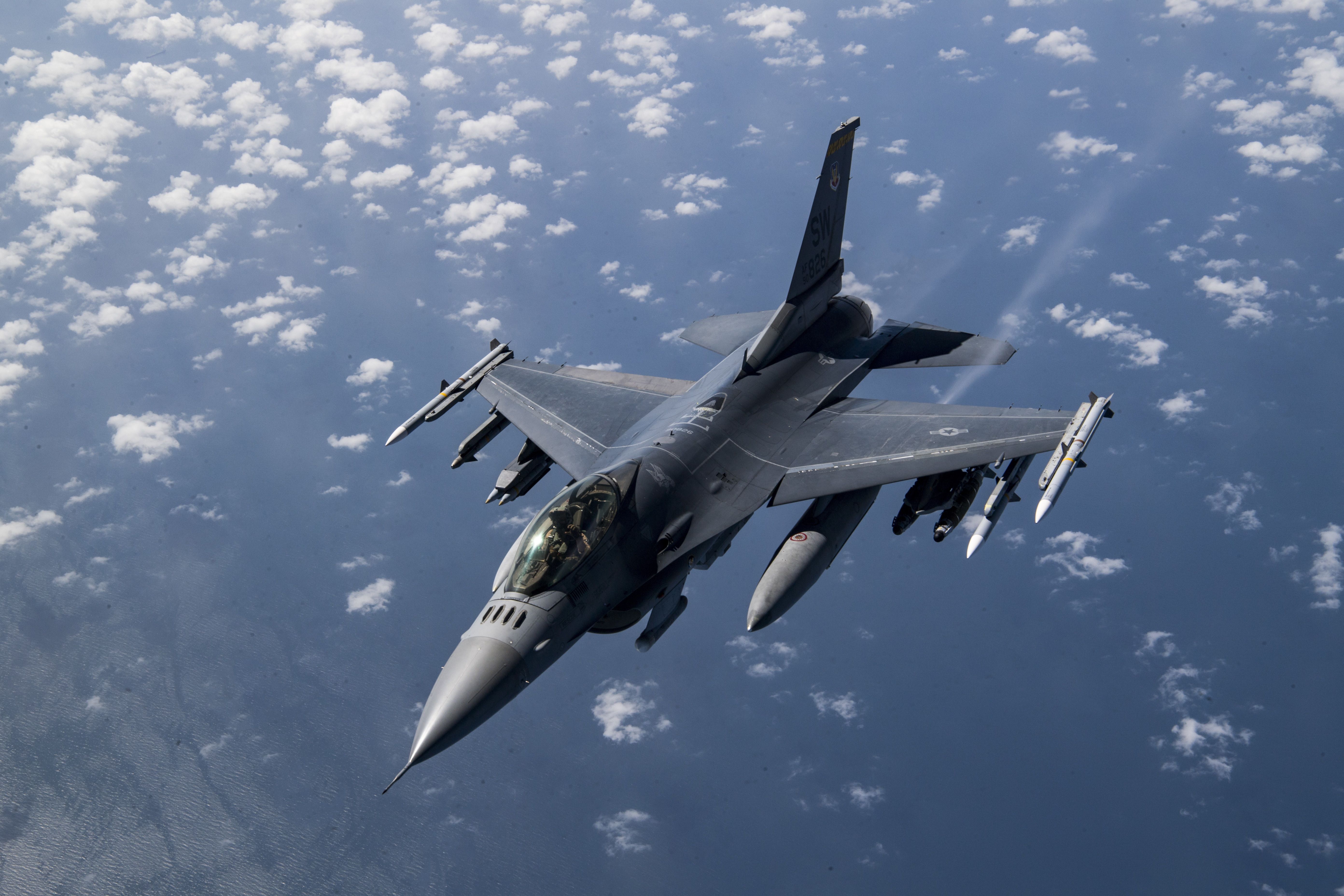Denmark and the Netherlands announced on Wednesday during the NATO summit in Washington that they had begun transferring their donations of F-16 fighter jets to Ukraine, with hopes they will quickly be deployed to counter intensifying Russian airstrikes.
Speaking at a public forum, U.S. Secretary of State Antony Blinken said the American-made jets will be “flying in the skies of Ukraine this summer”, to a round of applause.
The long-awaited supply of F-16s is part of what NATO’s secretary general, Jens Stoltenberg, promised would be “a substantial package” of support for Ukrainian troops, including four Patriot air defence systems and NATO-led training.
Though Denmark was one of the first countries to commit to sending 19 F-16 jets to Ukraine, the pledge took significant political wrangling, and was only landed in August 2023 – a year after Russia’s invasion of Ukraine began.
Together with aircraft from Norway, the Netherlands and Belgium, Ukraine is expecting to receive more than 60 F-16 jets this summer.
During a side event on Tuesday, however, Ukrainian President Volodymyr Zelenskyy said that his country needed at least 128 F-16s, and that those now being delivered were too few, too late in the battle.
“Even if we will have 50, it’s nothing,” Zelenskyy said. “We need – they have 300. We need … because we are defending, we need 128,” he said, according to Politico.
Ukrainian leaders have repeatedly pleaded with NATO for as many air defence resources as possible to defend against the Kremlin’s numerical advantage in missiles, ammunition, and aircraft.
The joint statement from US President Joe Biden, Danish PM Mette Frederiksen and Dutch Prime Minister Dick Schoof provided no specifics about precisely how many F-16s are being transferred, stating only “the transfer process for these F-16s is now underway.”
“The transfer process for these F-16s is now underway, and Ukraine will be flying operational F-16s this summer. We are unable to provide additional details at this time due to operational security concerns,” the leaders said in the statement. “We are grateful to Belgium and Norway for committing to provide further aircraft.”
In June, Danish Defense Minister Troels Lund Poulsen said that the government would allow Ukraine to use Denmark’s fleet of donated F-16 fighter jets to attack targets on Russian territory.
Previously, the jets could only be used to attack Russian targets on Ukrainian territory.
“We base ourselves on international law, and when Ukraine is in armed conflict, the F-16 aircraft they will soon receive from Denmark must also hit targets on the other side of the Ukrainian border,” he said.
“That means inside Russia, where they store and mobilise a great deal of the military that is used to attack Ukraine”.
Russian diplomat Konstantin Gavrilov, who heads a delegation in Vienna, told the Russian daily broadsheet Isvestija that Ukraine’s F-16 aircraft donated by Western countries pose a serious security problem and “the Russian army will shoot them down”.
Although ‘unfriendly’ countries had been warned, he said, “they insist – for example Holland and the Danish superheroes – that they will allow F-16 aircraft to be used whenever they can on Russian territory.”
The Russians have no way of knowing whether the planes carry nuclear weapons. Therefore, it is a matter of ‘nuclear safety’, he added.
Also in June, Russia’s ambassador to Denmark, Vladimir Barbin, issued a warning to Denmark.
In a comment to Ritzau, he said that using Danish weapons against targets in Russia could lead to an ‘uncontrolled development in the conflict’.
He warns of ‘catastrophic consequences’ if it ends in a direct clash with the Western military alliance NATO.
“From the Danish side, one should not take lightly Russia’s repeated warnings that the presence of the F-16 fighter jets in Ukraine will be perceived as a nuclear threat,” said Barbin.
On Monday, in what some observers said was Russian President Vladimir Putin’s message to the NATO alliance, a deadly Russian missile strike on several cities in Ukraine killed 38 and injured 190.
One missile flattened a children’s hospital in the Ukrainian capital of Kyiv, killing two and forcing its young, severely ill patients onto the streets.
















